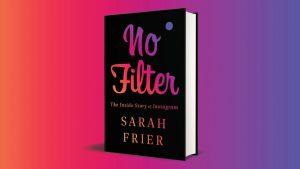In the world of online streaming platforms, the topic of censorship remains a wild frontier. Netflix made headlines in 2017 when it released a highly controversial television adaptation of the young adult novel, “13 Reasons Why,” over the fact that the season 1 finale of the show depicted a graphic suicide scene. Critics, as well as mental health professionals, condemned both Netflix and the show’s creators for its graphic portrayal of such an act—one that has never before been portrayed so blatantly in a show directed at a younger audience—for fear that it would inspire the age-old argument that art can influence action. Now, over two years and nearly two seasons later, the show has announced that it’s made the decision to remove the scene.
Meanwhile, Netflix also recently announced that it’s made new amendments to its policy regarding the depiction of smoking in content meant for a younger audience. Both of these decisions signal that Netflix is growing increasingly aware of its position as a media powerhouse and its responsibility to censor sensitive topics from younger audiences. This leaves just one question—what does that mean for the future of its content?
13 Reasons Why Removes Suicide Scene
In a decision that was long regarded as irresponsible, Netflix and the creators of “13 Reasons Why” fought long and hard to keep the controversial suicide scene in the show. The show follows the story of Hannah Baker (Katherine Langford), a high school student that killed herself and left behind a box of 13 home recorded tapes—each one meant for a different person in her life that led her to make such a grave decision. In the finale episode of the first season, Hannah is depicted in a bathtub where she cuts her wrists before her mom walks in and finds her dead body after a long pause. In the second season, another character is depicted being sodomized with a broom in a high school locker room. Both scenes earned “13 Reasons Why” heavy negative criticism, many claiming that the show is irresponsibly being subversive simply for the sake of being subversive.
The show and Netflix each announced earlier this week that they’ve now removed the controversial suicide scene from the Season 1 finale, replacing it with a shorter scene where Hannah looks at herself in the mirror before cutting to a shot of her mom finding her in the bath tub. Creators of the show argued that the scene was necessary to tell the story with the level of gravity that they wanted to create, but many mental health professionals warned that the depiction would only harm the mental health of viewers of the show. In a statement by Brian Yorkey, the showrunner, the show announced on its official twitter page why it decided to remove the controversial scene once and for all.
“Our creative intent in portraying the ugly, painful reality of suicide in such graphic detail in Season 1 was to tell the truth about the horror of such an act, and make sure no one would ever wish to emulate it,” the statement wrote. “But as we ready to launch Season 3, we have heard concerns about the scene from Dr. Christine Moutier at the American Foundation for Suicide Prevention and others, and have agreed with Netflix to re-edit it,” Yorkey continued.
Stranger Things Ignites Smoking Policies
While it took over two years for Netflix and “13 Reasons Why” to take action regarding a deeply controversial scene, “Stranger Things” sparked almost overnight changes to Netflix’s policy surrounding the portrayal of smoking in shows meant for younger audiences. Because the show takes place in the 1980’s, it portrays heavy smoking from many of its adult characters. However, this sparked (pun intended) criticism from organizations like the Truth Initiative . The organization argues that, because the show receives a younger audience and features so many young stars, its portrayal of smoking may negatively influence teens and young adults to take up the habit.
Netflix made adjustments to its company policy regarding smoking, announcing that shows that receive a wide audience rating for ages younger than 17 will have strict smoking policies. This means that viewers can expect favorite characters to have kicked the habit altogether by the time season 4 of the hit show premieres sometime in the unannounced future. Does this mean that other shows with older audiences are going to see greater censorship in the future? Probably not. Realistically, would “Orange Is The New Black” have been the same without the profanities, nudity, and drug use? Absolutely not.








